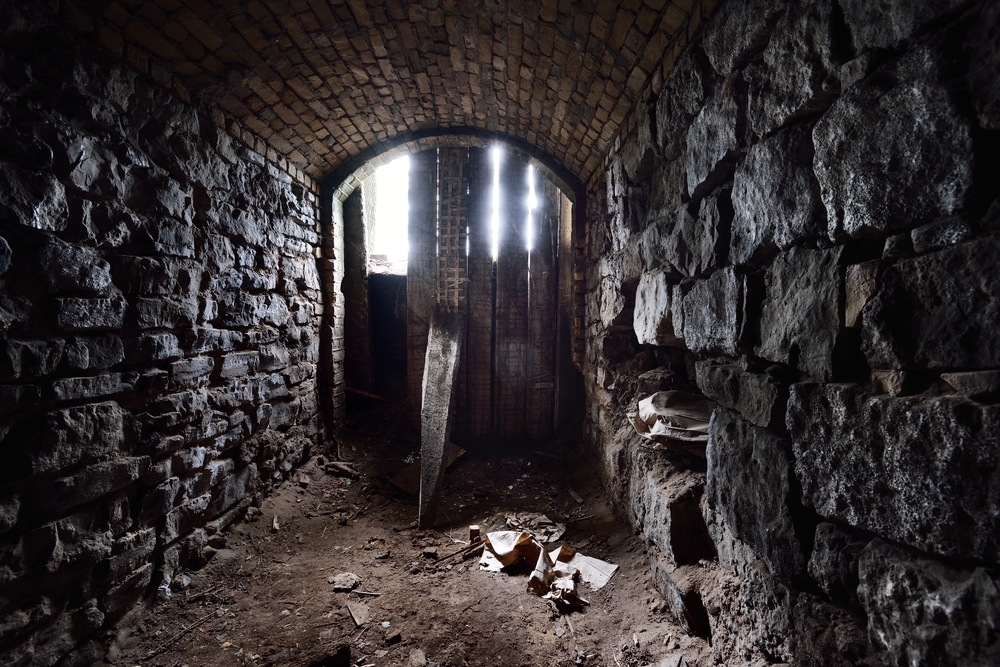Inside Take: Stop It Already With the Outrage Over the Philadelphia Book Dungeon

Those poor, poor books. | Shutterstock.com
(Editor’s note: This is an opinion column from a Citified insider.)
You’ve heard of the Philly Shrug? Whelp, here it is, loud and proud. In this article from The Inquirer, we are regaled by a familiar tale of incompetence and waste: the School District of Philadelphia must pay people to get rid of books they bought so they don’t rot in the basement of a school they closed.
Lumbering bureaucracy leading to staggering waste. It’s a story with a familiar, comforting quality, like your childhood blanket or a classic episode of Law and Order. And nothing compliments delicious confirmation bias like scrumptious hot-takes. Oh, the armchair librarians were out and it was their goddamn Super Bowl.
Parents can take the books! No, send them to the neediest schools. Make Dr. Hite hand deliver them. Wait, why not give one teacher from each school a shopping bag and let them go nuts (I didn’t make these up. I couldn’t).
The commonality here, besides a warm heart and good nature that should really temper snark, is that none of the commentators has spent much time in a school. Go now, ask a Principal about all their extra closet space. Or shelf room. Or people to stock, inventory, maintain, and re-box in 3 months.
Go to any school that’s been around longer than 5 years, I can guarantee they have textbooks gathering dust. Most schools have an unwritten rule about throwing books, old computers, or anything in a dumpster. The outcry, we are told, would be worse than the rot.
School Reform Commission Chair Marge Neff explained that, as these books were purchased in the Ackerman administration, they are probably too old to be of any value.
“Oh posh!” The machine of outrage demands to be fed. Old or not, these books had to be of use. Mike Newell, who is by all accounts is a great reporter, sums up the reasoning:
And in a district in financial crisis, aren’t old textbooks better than no textbooks?
Math doesn’t change. Chemistry doesn’t change. Literature is timeless.
Oh boy.
Bok may be stuffed with fantastic classics like “Huckleberry Finn” or “Ender’s Game” (new classic). But our kids are far more likely to identify with Jim and Alai, and far less likely to give a damn when almost the entire library is built of dead, white men. We need diverse books; our “timeless” American curriculum looks nothing like America.
Here’s my “Book Love” wish list. I’ve read a bunch of them and (note that this is coming from a serial literary neophobe) they are just as worthwhile for young readers as is “Catcher in the Rye”.
Traditional math textbooks? Well, if you need any indication that traditional Math class needs a total makeover, I encourage you to sit through one. If you make it (or not), read through Dan Meyer. I’m not one for the “National Crisis!” storyline, but there’s ample evidence that change has to come.
Science is static? Tell that to Kansas. Or Pluto.
The assumption is that kids are missing content. Ridiculous. Young people today have the greatest collection of human knowledge ever assembled. They don’t need books as much as they need context. They needs guides, ways to make the content real and applicable. They need adults.
The book dungeon in Bok (which everyone knew about) was not ignored as much as it was ignorable. For all the positive energy, the outrage was more about the zeitgeist than the schools. The Philly Shrug feels good! It’s fun to scream “BLLLAAAAH CORRUPTION” because corruption and incompetence can be fixed.
Here’s another thought: What if an incredibly complex system of incredibly complex systems was serially starved for resources, meaning that people had to focus on keeping the lights on instead of distributing outdated books? That doesn’t stoke the comments section or bring in the hit counts. On the other hand, they’re not keeping nurses or FAFSA counselors in cellophane – and even if they did, I’m not sure I could fit one in a shopping bag.
You want a scandal? Bok Technical School was a successful school in a very poor community. It was closed as part of a larger plan, paid for by private philanthropy groups and hidden from the general public. This plan has been mostly abandoned, not only for political purposes but because it has been a fiscal disaster for the District. Nobody has been held accountable – in fact the people in charge of the District quietly gave themselves a raise.
Mismanagement is bad. More books would be nice. But if this is a way not to talk about the private-public partnerships, which almost always are more beneficial to the private than the public, and which have become a de facto and de jure faction running public schools, we’re not going to help anyone.
Simple solutions to complex problems are fool’s gold – pretty, fun to find, and ultimate worthless.
Andrew Saltz has been teaching children reading and composition for 8 years at the Paul Robeson High School for Human Services. Follow him on Twitter at @mr_saltz.